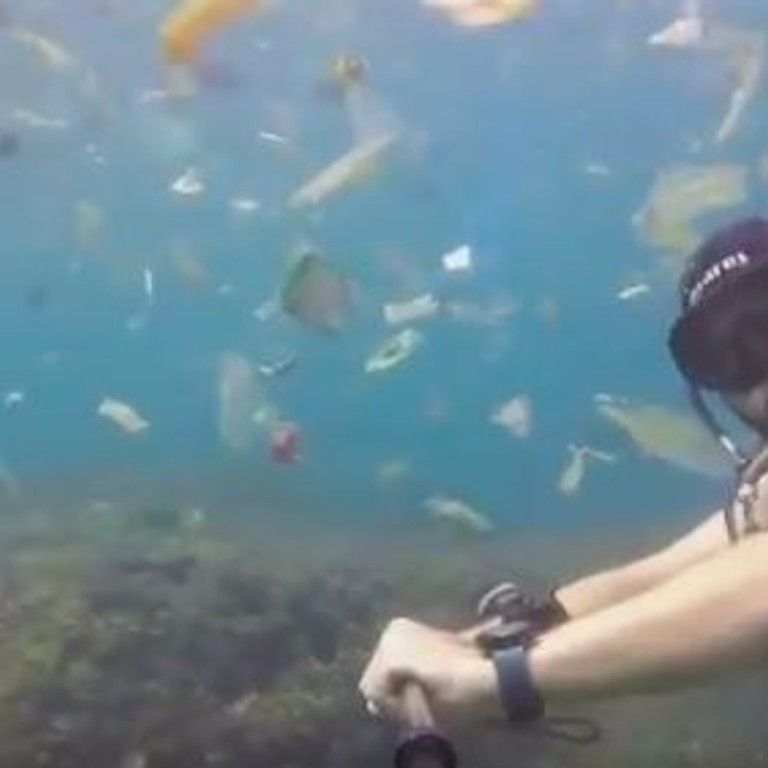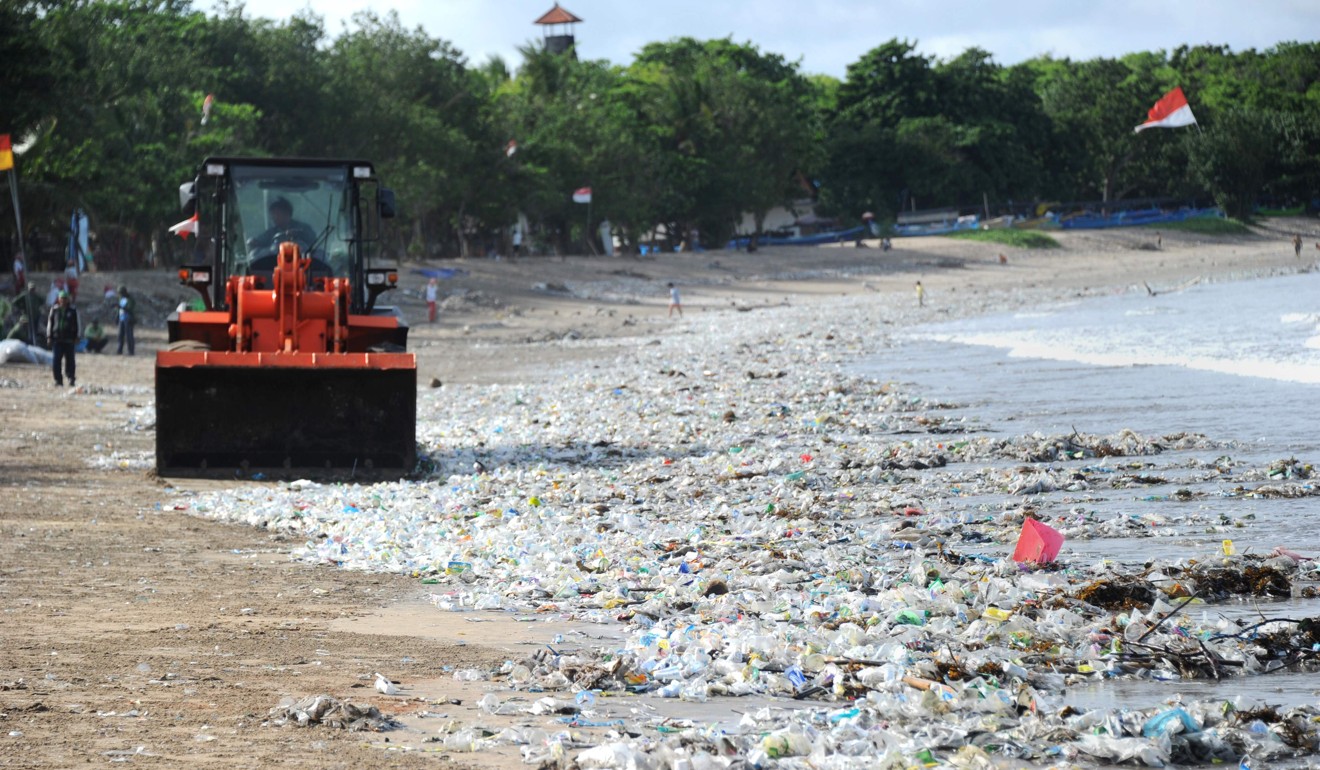
Video | Diver films shocking underwater video of plastic garbage wasteland in Bali
‘Plastic bags, more plastic bags, plastic, plastic, so much plastic!’
Millions of tourists are drawn to Bali’s palm-fringed scenery and rich marine life, but a British diver has released stark footage highlighting a growing problem in its famously crystal-clear waters: plastic rubbish.
An underwater video shot by Rich Horner this week showing a sea overflowing with plastic and other garbage at Manta Point, a well-known diving site near Bali’s main island, has already been viewed about a million times.
“The ocean currents brought us in a lovely gift of a slick of jellyfish, plankton, leaves, branches, fronds, sticks, etc … Oh, and some plastic,” the diver wrote on his Facebook account.
Plastics of all kinds – including bottles, cups and straws – were floating around him, he said.
“Plastic bags, more plastic bags, plastic, plastic, so much plastic!”
Often dubbed a paradise on earth, the Indonesian holiday island has become an embarrassing poster child for the country’s trash crisis.
The problem has grown so bad that officials in Bali last year declared a “garbage emergency” across a six-kilometre stretch of coast that included popular beaches Jimbaran, Kuta and Seminyak.
Manta Point is about 40 kilometres (25 miles) from Bali’s main island.
Indonesia, an archipelago of more than 17,000 islands, is the world’s second biggest contributor to marine debris after China, and a colossal 1.29 million metric tonnes is estimated to be produced annually by the Southeast Asian nation.

The waves of plastic flooding into rivers and oceans have been causing problems for years, clogging waterways in cities, increasing the risk of floods, and injuring or killing marine animals who ingest or become trapped by plastic packaging.
“Microplastics can contaminate fish which, if eaten by humans, could cause health problems, including cancer,” I Gede Hendrawan, an environmental oceanography researcher at Bali’s Udayana University, previously said.
As part of its commitment under the UN Environment’s Clean Seas campaign, Jakarta has pledged to reduce marine plastic waste by 70 per cent by 2025, through recycling, curbing the use of plastic bags, clean-up campaigns and raising public awareness.
Still, the scale of the problem facing Indonesia is huge, due to its population of more than 260 million and poor waste processing infrastructure.

.png?itok=arIb17P0)